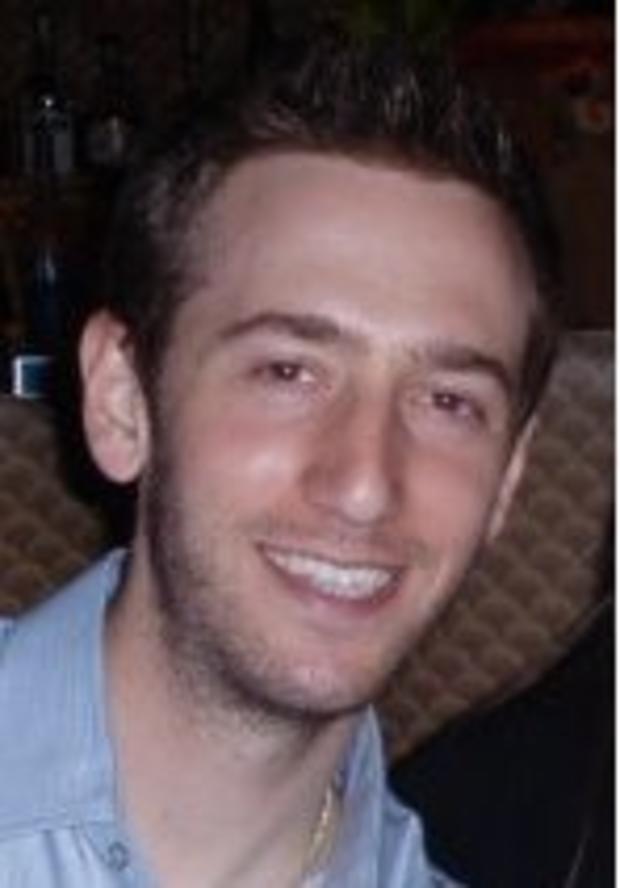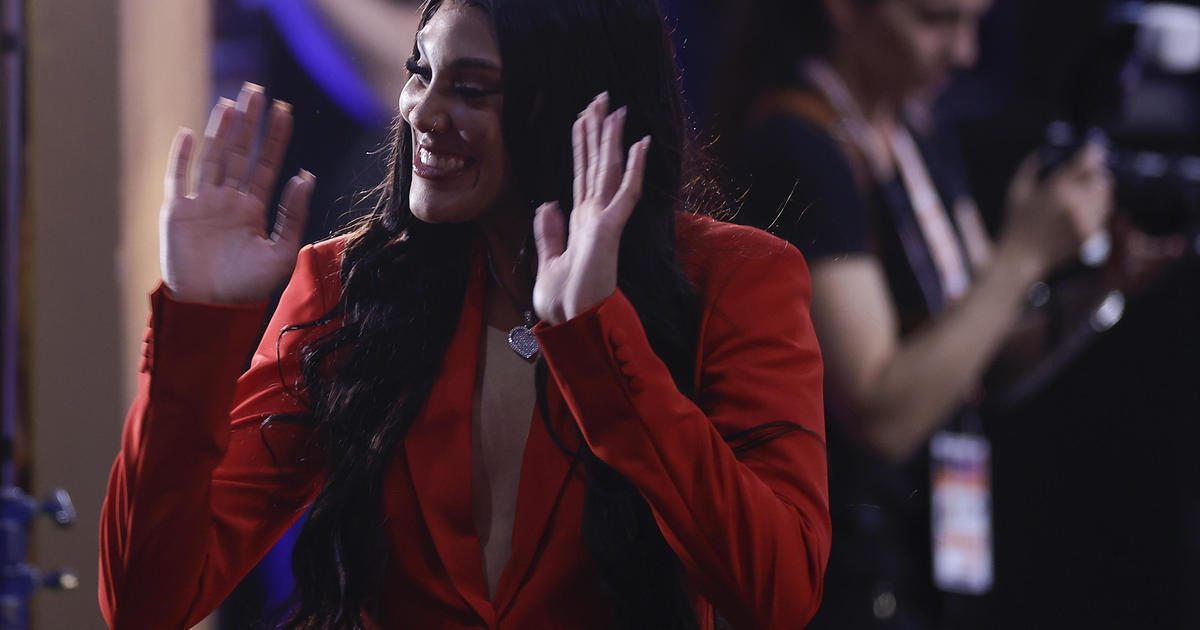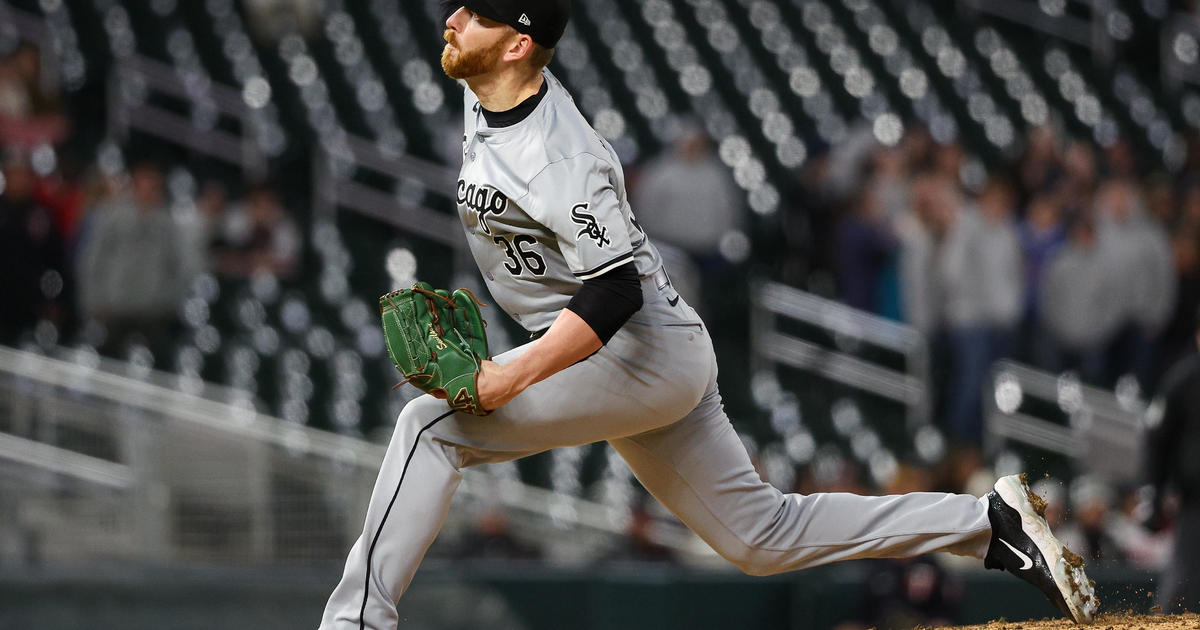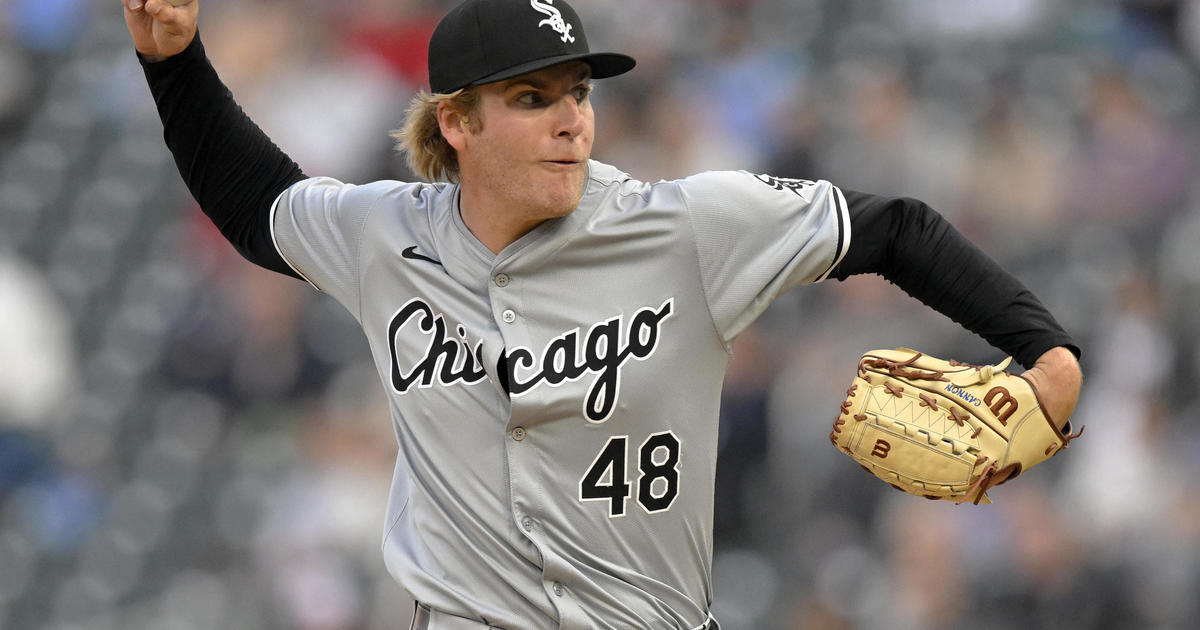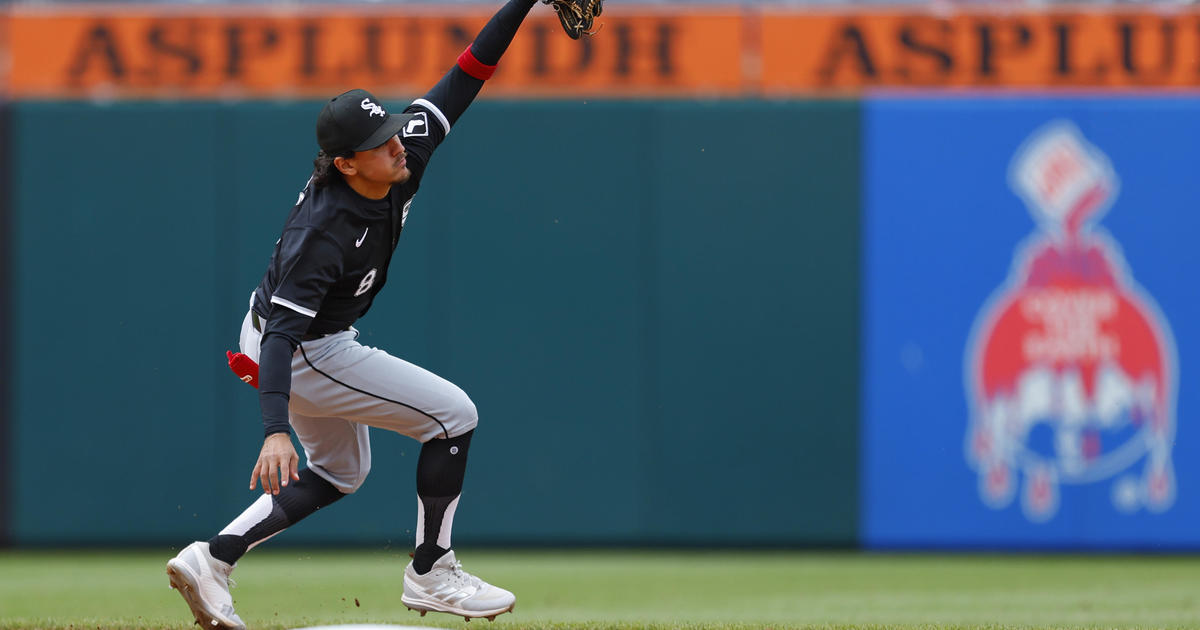Angi: Moving Forward With - Or Without - Viciedo
By Cee Angi-
(CBS) In the sixth inning of the White Sox' July 23rd game against the Tigers, Hernan Perez ripped a ball into the gap in left-center, sending it all the way to the wall.
Alejandro De Aza and Dayan Viciedo reached the ball at roughly the same time, which had more to do with positioning than equal speed—De Aza is presently leading his personal stolen-base battle with Viciedo 57-2. Viciedo had a better angle on making the play.
He put his glove hand on the wall, supporting himself as he bent over much in the same fashion I did after back surgery. He tried to scoop the ball up with his bare hand, but succeeded only in scooting it over to his left. He then tried to pick it up with his glove hand, but he didn't grip it tightly enough and it bounced back to the ground. That was two fumbles on one play, but Viciedo is nothing if not ambitious: Having finally apprehended the ball with his glove, he flipped it in the air, intending to catch it with his bare hand in an unnecessarily risky high-degree-of-difficulty acrobatic transfer act.
He dropped it again.
I don't remember how quickly Viciedo got the ball back into the infield, because at that point, it really didn't matter. Alex Avila, a catcher, had scored from first base, and Perez, who probably earned a double but was granted a triple anyway, scored at some point during Viciedo's juggling act.
At the plate that night, Viciedo went 0-for-3 with a walk.
The White Sox are in the midst of a rebuilding effort, evaluating their players and sorting them into groups labeled "Part of the Future" and "Part of the Past." Defensive blunders of that magnitude aren't the norm for Viciedo, but when a play like that occurs, it forces one to consider what an odd duck he is—a slow slugger who, despite Wednesday's grand slam, doesn't slug all that much, a full-time player with platoon issues, and an outfielder who plays defense like an infielder who wandered out to the pasture by mistake—and by extension wonder which pile he should be placed on. Further, if Viciedo is assigned to the "keeper" group, it's fair to ask if he has been used correctly, and if more careful attention to his role would mean the team would extract more value from him than they have to date.
Left field is an important position for a healthy attack. Across the major leagues it's the third-most likely place to stash offense behind first base and right field. The White Sox have had a revolving door there since Scott Podsednik was designated for assignment following the 2007 season. Since then, they used Nick Swisher, Carlos Quentin, and Juan Pierre, and aside from one fantastic year from Quentin in 2008, it has consistently been one of the weakest positions in the lineup. Although Viciedo was a third baseman and occasional shortstop in Cuba before defecting and had seen time at third and first with the Sox organization, he was the team's best option to replace Juan Pierre after 2011, since there was hope that he would finally give the team a consistent slugging presence in left.
When Viciedo defected from Cuba in May of 2008, his entrance to the majors was highly anticipated. He was a teen sensation in his home country, possessed of superior bat speed, raw power, and arm strength, none of which can be taught. Viciedo signed a four-year, $10 million deal with the Sox in December of 2008, a contract which expires at the end of the 2013 season. This is only Viciedo's second full season in the majors, but due to that contract, he has to be paid like an older, more successful player, and so far he hasn't been worth it.
In his short tenure with the Sox, Viciedo has been worth 0.4 Wins Above Replacement, which is to say that overall, he hasn't been too different from a Triple-A journeyman. It isn't a great showing, especially when you consider the expense of paying an unestablished player a veteran's salary. The defensive stats don't love Viciedo at any position, but his largest liability has been his lack of offense. Since 2010, he has hit just .256/.301/.425, and while he showed a spike in home runs and the ability to hit left-handers last season, he's back to being a sub-replacement level outfielder who can't seem to find his power stroke.
Part of Viciedo's struggles is timing: His hands are so fast and the rest of his body can't seem to catch up. The hitting coach duo of Jeff Manto and Harold Baines have been trying to straighten him up, but he's shown minimal improvement this season, his progress likely hindered by the abdominal strain that landed him on the disabled list in May.
Because of the timing issues, Viciedo has hit considerably fewer home runs this season (20.2 at bats per home run last season, compared with 33.0 this year) and he's hit a large number of grounders for a power hitter, likely a side effect from all of the swing-tinkering, and a recipe for disaster for a notoriously slow player like Viciedo. Not only has the power seemed to disappear, his ability to get on-base has shriveled since he's rarely walks.
The good news is that Viciedo is still young, and he'll turn 25 before the start of next season. There's still time for him to reach the offensive upside that made him such a desirable player when he defected. However, the White Sox are running out of time in another sense. Because of Viciedo's contract, they cannot cut his salary drastically for 2014, and in 2015 he will become eligible for arbitration. Thus far, the Sox have already paid Viciedo $10 million dollars, which is a lot considering how little value he's brought to the team thus far, and if they want to offer him a contract for 2014, they'll have to offer him at least $2.24 million because of a provision in the Collective Bargaining Agreement that says a player cannot have a pay cut in excess of 20 percent of his previous season's salary. If the Sox want to pay him less, which they might, given his struggles, they'd have to non-tender him, which would make him a free agent. At that point, the Sox would still have the option to re-sign him, but he could also negotiate with any other team.
Should the White Sox choose to retain Viciedo for 2014, it may be time to reconsider his move to the outfield.
It's not clear what the Sox will be looking for in the way of free agents this offseason, but the best options available in the outfield are Jacoby Ellsbury, Shin-Soo Choo, and Nelson Cruz, who is currently serving a suspension related to the Biogenesis scandal. While those players might require more money and more years than the Sox may be willing to commit during a rebuilding period, there may be some lower-tier options that could serve as a stop gap until it's clear whether prospects like Courtney Hawkins, Brandon Jacobs, and Trayce Thompson will develop into major-league starters.
Moving Viciedo to first base could be the Sox' best option for several reasons. If Paul Konerko is retiring, they'll need someone for the position, and if Viciedo is good, it could expedite Adam Dunn's departure (which could bring some value in return). First base hasn't been a strong defensive position for the Sox in years, so as long as Viciedo is a serviceable defender, he won't look glaringly out of place there. But the biggest reason to move him there, is because the talent pool for first baseman is extremely shallow league-wide, and organically cultivating talent at the position would not only provide some stability for the Sox' roster, but if he finally finds his power stroke, they could be sitting on a very tradable asset, considering there are virtually zero prospects for first base in the minors in the majors (the list beginning with the Astros' Jonathan Singleton and dropping off rapidly). Because of the lack of ready outfielders in the system changing Viciedo's position would necessitate bringing in a player from the outside, but that's where the Sox' free-agent dollars would be best spent in any case.
The money will likely work itself out, however, and there's every indication that Viciedo will still be on the roster next season, not because he's necessarily earned it, but because during a rebuild with limited options, it would be even more difficult to give up on a player with such raw talent before he's reached his upside.
Still, a rebuilding phase means abandoning all kinds of experiments that didn't work out quite the way you'd planned. It's still too early to know for sure, but the time may soon come when the White Sox are forced to admit that Viciedo is one of those fliers best consigned to the justly-forgotten era that was the championship-hangover years.
Cee Angi is a freelance sportswriter, whose work has appeared at Baseball Prospectus, The Platoon Advantage, The Classical, and is currently one of SB Nation's featured columnists covering Major League Baseball. Follow her on Twitter @CeeAngi and read more of her CBS Chicago blog entries here.
